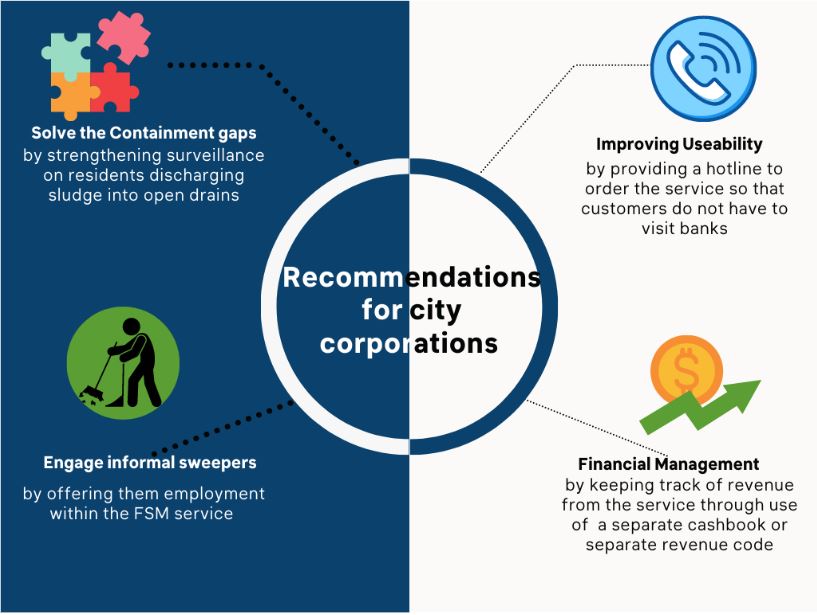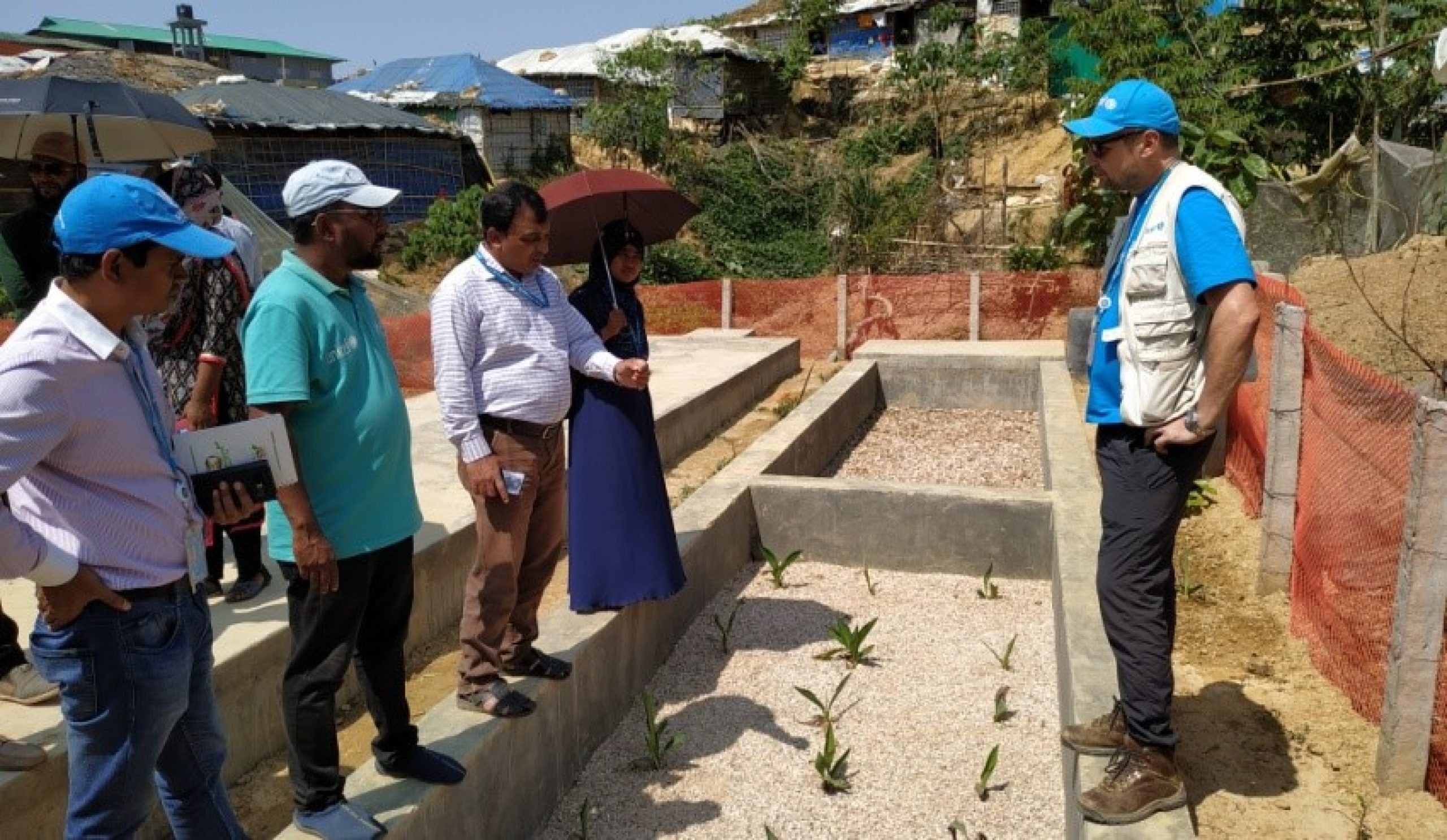The NGO Forum for Public Health in partnership with the Mymensingh City Corporation (MCC) introduced Faecal Sludge Management (FSM) service in Mymensingh. NGO Forum worked with the MCC to institutionalize the emptying service using vacutugs and constructed the Faecal Sludge Treatment Plant (FSTP). The residents of Mymensingh municipality used to employ informal sweepers or Harijans who would take risks of their health and safety while emptying septic tanks and disposing of the faecal sludge (FS) into the environment, causing water, soil, and air pollution. FSM service is steadily gaining popularity in Mymensingh, and institutional users such as the Army Cantonments with large apartment complexes have regularly used the service. However, the FSM service, in general, still has limited penetration. On average the composting plant produces two tons of co-composts per month due to the low collection of FS.
The emptying service of MCC has faced number of challenges. The width of the vacutugs is over 4 ft, preventing it from entering the narrow alleyways. Even when the vehicles do enter, the septic tank may be located behind the building where the emptying pipes do not reach due to a shortage in length and suction capacity. Another reason behind the lack of demand for the mechanical emptying service is its application procedure. The entire process of receiving the receipt and submitting the bank challan is a lengthy and tiring process for the customers. The conservancy department of the MCC is also overburdened since there is only one staff to manage the hotline service for FSM. The emptying process is also made difficult by the hardening of faecal sludge, which deters the completion of the FSM Service. The vacutugs cannot empty the solid mass and must rely on hydration to make the FS a liquid for easy suction. The pipeline to the latrines and septic tank are connected to open waterways and drains, in our small sample survey 13.7% of the respondents were found to not empty their septic tanks at all in the last one year. Mymensingh City Corporation (MCC) has recently been declared as a city corporation and just after the declaration, it has faced the disruptions due to COVID-19. Hence, the staffing and institutional capacity of MCC is still very limited. NGO Forum for Public Health has been providing critical technical assistance and operational support in operating the FSTP plant and building the capacity of MCC. However, after the phase-out of the project, there are questions about the operational modality of FSM service in MCC.
After evaluating the context and findings from the FSM Service at MCC, three different modalities have been developed. These models has been developed to simulate the FSM Service under these models. The first model is the Self Operating Model by the MCC where there is no private sector engagement and MCC through its own capacity run the entire FSM value chain. However, this is the weakest among the proposed model as MCC, with its limited human resource capacity cannot meet the customer request demand and mobilize the service efficiently in order to prevent the customers to explore alternatives. The realized revenue from this model would be 1% of the total number of potential orders as the MCC is also less likely to operate the FSTP plant efficiently as it requires constant monitoring and co-composts requires proper marketing and distribution.Under the current scenario if the MCC self-operates the FSM Service it will incur losses and will not be able to provide the FSM Service to the customers adequately.
The second proposed model is the Joint Revenue Sharing Model in this model, the MCC tenders a private sector to operate both the emptying service and FSTP plant. A joint account will be established, where the revenue for the emptying service will be shared on pro-rata basis based on the frequency of trip and the FSTP plant will be leased out to the private sector. If the private sector operates the emptying service and the FSTP plant effectively it is likely generate sufficiently revenue to continue operating and the MCC also likely to benefit from the The third proposed model is the Fiscal Revenue Based Model where customers will pay for FSM through 1 or 2% premium of their holding tax. A private sector will be tendered to manage the emptying the FSTP service. In this model, all the residents of MCC have to be provided with mandatory FSM Service. Hence, this operational model will require full scale up of the FSM Service. The private sector will be responsible for incidental operational costs out of the mechanical emptying and the vacutug maintenance but the purchase of vacutug and construction of new FSTPS will lie with the MCC. However, this model will rapidly overburden the financial capacity of the MCC and they have to receive external financial assistance or debt to develop the necessary infrastructures in order for the private sector to take the risk.


